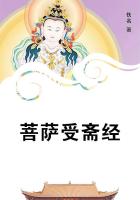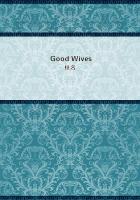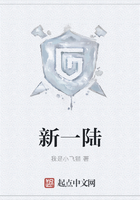Among the Tartars, nothing can exceed the respect and reverence which the children usually pay to their father.They look upon him as the sovereign lord and master of his family, and consider it as their duty to serve him upon all occasions.In those parts of Tartary which have any intercourse with the great nations of Asia, it is also common for the father to sell his children of both ***es; and from thence the women and eunuchs, in the harams and seraglios, belonging to men of wealth and distinction in those countries, are said to be frequently procured.
Upon the coast of Africa, the power of the father is carried to the most excessive pitch, and exercised with the utmost severity.It is too well known to be denied, that, in order to supply the European market, he often disposes of his own children for slaves; and that the chief part of a man's wealth is supposed to consist of the number of his descendants.Upon the slave-coast, the children are accustomed to throw themselves upon their knees, as often as they come into the presence of their father.
The following account, given by Commodore Byron, may serve in some measure to show the spirit with which the savages of South America are apt to govern the members of their family.
Here [says he] I must relate a little anecdote of our Christian Cacique.He and his wife had gone off, at some distance from the shore, in their canoe, when she dived for sea-eggs; but not meeting with great success, they returned a good deal out of humour.A little boy of theirs, about three years old, whom they appeared to be doatingly fond of, watching for his father and mother's return, ran into the surf to meet them: the father handed a basket of sea-eggs to the child, which being too heavy for him to carry, he let it fall; upon which the father jumped out of the canoe, and catching the boy up in his arms, dashed him with the utmost violence against the stones.The poor little creature lay motionless and bleeding, and in that condition was taken up by the mother, but died soon after.She appeared inconsolable for some time; but the brute his father shewed little concern about it.(11*)The exposition of infants, so common in a great part of the nations of antiquity, is a proof that the different heads of families were under no restraint or control in the management of their domestic concerns.This barbarous practice was probably introduced in those rude ages when the father was often incapable of maintaining his children, and from the influence of old usage, was permitted to remain in later times, when the plea of necessity could no longer be urged in its vindication.How shocking soever it may appear to us, the custom of exposing infant children was universal among the ancient inhabitants of Greece, and was never abolished even by such of the Greek states as were most distinguished for their learning and politeness.(12*)According to the laws and customs of the Romans, the father had anciently an unlimited power of putting his children to death, and of selling them for slaves.While they remained in his family, they were incapable of having any estate of their own, and whatever they acquired, either by their own industry, or by the donations of others, became immediately the property of their father.Though with respect to every other person they were regarded as free, yet with respect to their father they were considered as in a state of absolute slavery and subjection; and they could neither marry, nor enter into any other contract, without his approbation and consent.(13*)In one respect, the power of a father over his sons appears, in ancient Rome, to have extended even farther than that of a master over his slaves.If upon any occasion a son had been sold by his father, and had afterwards obtained his ******* from the purchaser, he did not thereby become independent, but was again reduced under the paternal dominion.The same consequence followed, if he had been sold and manumitted a second time; and it was only after a third purchase, that the power of his father was altogether dissolved, and that he was permitted to enjoy any real and permanent advantage from the bounty of his master.
This peculiarity is said to have been derived from a statute of Romulus, adopted into the laws of the twelve tables, and affords a sufficient proof that the Romans had anciently no idea of a child living in the family, without being considered as the slave of his father.
In those early ages, when this practice was first introduced, the Roman state was composed of a few clans, or families of barbarians, the members of which had usually a strong attachment to one another, and were at variance with most of their neighbours.When a son therefore had been banished from his family by the avarice of his father, we may suppose that, as soon as he was at liberty, he would not think of remaining in a foreign tribe, or of submitting to the hardships of procuriNg his food in a state of solitude, but that he would rather choose to return to his own kindred, and again submit to that jurisdiction, which was more useful from the protection it afforded, than painful from the service and obedience which it required.
It is probable, however, that if in this manner a child had been frequently separated from the company of his relations, he would at length grow weary of returning to a society in which he was the object of so little affection, and in which he was treated with so much contempt.How long he would be disposed to maintain his former connexions, and how often he would be willing to restore that property which his father had abandoned, seems, from the nature of the thing, impossible to ascertain.But whatever might be the conduct of the son, it seems to have been intended by the statute of Romulus, that, after a third sale, the property of the father should be finally extinguished, and that he should never afterwards recover a power which he had exercised with such immoderate severity.
Section II















